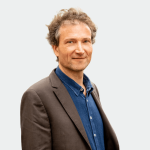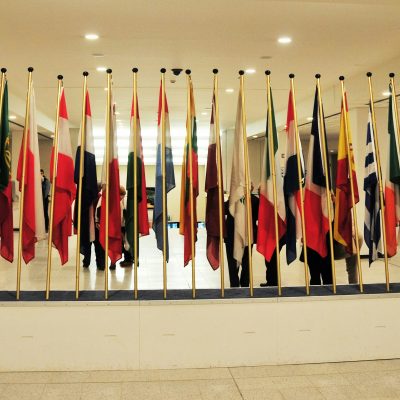
Les avis de tempêtes s’accumulent en Europe. Il y a d’abord l’horrible guerre en Ukraine, qui dure et ne donne aucun signe d’apaisement immédiat. Une guerre hybride livrée par la Russie, dont les coupures subites de gaz servent, entre autres, d’arme contre nous. Les Vingt-Sept se réunissent d’urgence ce 9 septembre pour réagir à la flambée des prix. L’inflation engendrée par la brutale hausse du coût des hydrocarbures, consécutive au conflit, conduit la Banque centrale européenne à durcir sa politique monétaire mais au moment même où la récession guette, notamment en Allemagne. La hausse du coût de la vie nourrit une grogne sociale, avec un risque d’agitations durant ces mois critiques dont même le Secrétaire général de l’Otan, Jens Stoltenberg, s’inquiète publiquement.
Le risque d’orages est aussi politique. Outre-Manche, l’arrivée au pouvoir de Liz Truss et son gouvernement des plus eurosceptiques augure de relations toujours tendues entre Londres et les Vingt-Sept, et singulièrement avec Paris. En Suède, où se tiennent des législatives ce 11 septembre, la formation d’une nouvelle coalition pourrait s’éterniser, comme en 2018, tant les sondages donnent au coude-à-coude la gauche et la droite, laquelle est prête à gouverner avec l’extrême-droite. Comme en Italie, où l’alliance des droites devrait mettre Giorgia Meloni à la tête du prochain gouvernement, à l’issue des législatives du 25 septembre. Les relations avec Bruxelles seront houleuses et singulièrement ici encore avec Paris.
En cette période chahutée, la France et l’Allemagne doivent agir de concert pour tenir l’unité européenne, le meilleur front à opposer à Moscou. En six mois d’agression russe, cette unité jamais évidente a permis l’adoption de six trains de sanctions, dont les effets gagnent lentement mais sûrement l’économie russe. Entre Européens, sobriété et solidarité énergétiques sont les deux mots d’ordre pour affronter l’hiver qui approche et les suivants. Non seulement en réponse à la guerre mais aussi au changement climatique toujours plus palpable sur notre continent à chaque saison.
Cette solidarité entre pays est au cœur du discours remarquable d’Olaf Scholz sur l’Europe, prononcé à Prague le 29 août. L’Allemagne, toute première économie de l’UE qu’elle est, a besoin de cette solidarité. La France, face aux incendies cet été, y a fait appel et, avec son parc nucléaire en partie à l’arrêt, mise aussi dessus. Plus largement, la solidarité européenne est requise ainsi que la coopération pour sortir des dépendances, que la guerre comme les crises précédentes mettent à nu. Elle est nécessaire aussi face aux demandes d’asile. Et la solidarité encore doit guider la répartition des efforts attendus de chaque acteur de la société, à tous niveaux, en ces temps exigeants.
L’Institut Jacques Delors se définit comme un laboratoire d’idées opérationnelles pour faire avancer l’intégration européenne à l’aune des principes et réalisations de notre fondateur. « La solidarité qui unit », selon l’heureuse formule de Jacques Delors, doit prévaloir davantage encore en Europe par gros temps. Sans attendre le choc gazier, notre centre énergie plaide pour des stockages communs de gaz et des achats groupés. Il est investi dans des projets européens de recherche en sobriété énergétique (Fulfill), efficacité énergétique (Referee), citoyenneté énergétique (Prospect) et dans l’innovation énergétique (Innovation Hub), qui sont autant de leviers de transformation de notre modèle économique et social. Cet automne verra aussi notre think tank commencer un nouveau projet de recherche européen pour repenser la gouvernance économique de l’Union (Regroup). Et nous allons développer nos travaux sur l’élargissement, qui dessine l’Europe de demain. Alors que la guerre bouleverse notre continent, que la réalité sans cesse mouvante bouscule nos idées, nous devenons un laboratoire pour temps difficiles.




